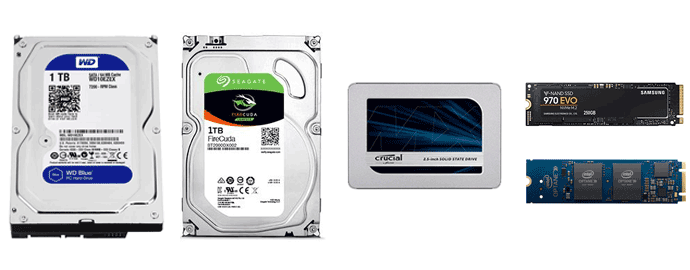

But when it comes to SSD vs HDD lifespan, another picture arises. SSD vs HDD Lifespanīy now, you may be thinking that SSDs are far superior to other types of hard drives. Systems using SSD drives feel snappier due to their ability to quickly retrieve files. There’s not much more to be said about SSD vs HDD speed.

It’s like the difference between a two-wheeled scooter that you have to push and one with an electric motor. Files can be written and read without the need for a spinning disc. And while the lifespan might generally be shorter than an HDD, solid-state drives win the battle of SSD vs HDD reliability hands down. Because SSDs don’t have moving parts (hence the term, “solid state”), there’s a lot less that can go wrong in terms of malfunctioning. Let’s look at the differences in terms of reliability, speed, and lifespan. Comparing SSDs to HDDs is similar to comparing SATAs to SSDs. HDDs are similar to SATA drives in terms of the functionality. But take note of the fact that because SATA drives have moving parts, they are more likely to malfunction. If you’re looking for a hard drive with tons of storage space, a SATA drive may be for you, as they commonly hold terabytes of data. However, SATA drives are also slower to boot up and slower in retrieving data than SSDs. SATA drives are less expensive and more common than SSDs. The third option for hard drives is a SATA drive. There’s no longer any need for the bulky hard disks that once resembled cross-cut sections of a cinderblock. That’s why laptops have gotten so much smaller and lighter in recent years. It’s revolutionary in that for the first time, hard disk storage can now be lightning fast while fitting onto an even smaller device. It’s almost like random access memory (RAM) that doesn’t delete itself when the device powers off. SSDs store memory in flash drive where it can be easily accessed. Solid-state drives (SSD), by comparison, do not have this problem. Files have to be sorted back together in an orderly fashion, not unlike an actual, physical filing cabinet. That’s why hard disk drives need to be “de-fragmented” or “de-fragged” from time to time. It just takes more time as the drive has to spin for a little while longer. HDDs can still access files that are not all written in one place. But as time goes on, and lots of files of varying sizes become written to the disk, they don’t all fit together nicely. When large files are being written to a new drive, they fit nicely into the storage space. This occurs as a result of the disc becoming crowded with data that was not written on the drive sequentially. One of the most hassling problems of hard disk drives is that they tend to get “fragmented” with time. These drives are large, bulky, and prone to problems. The whole device kind of resembles a tiny, shiny vinyl record player.


HDDs use a read/write arm on top of a spinning disc. Hard disk drives (HDD) are the original hard drives.


 0 kommentar(er)
0 kommentar(er)
